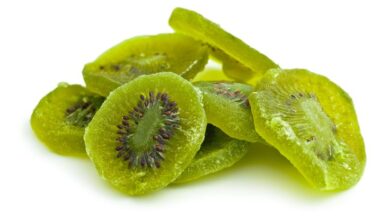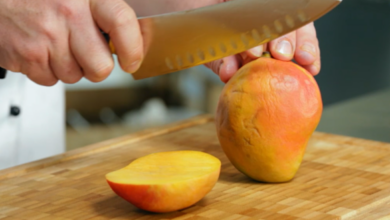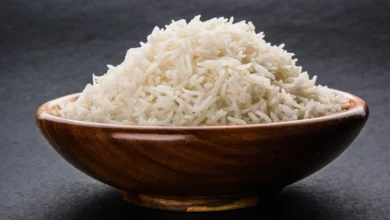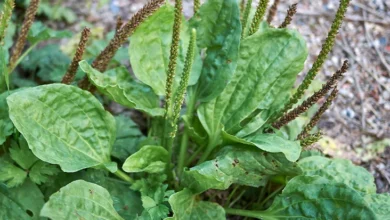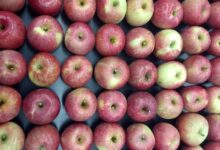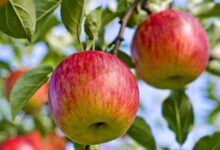Why Are Bananas Naturally Radioactive?

Bananas are a well-loved fruit because they are full of good stuff like potassium and easy to eat. People everywhere eat bananas, putting them in their lunches or blending them into drinks. But most people don’t know that bananas have a little bit of something called radioactivity. So, what is it about bananas that makes them radioactive, and should we be worried when we eat them?
Table of Contents
- How Bananas Get Radioactive
- 1. Taking It in from the Dirt
- 2. Getting Hit by Cosmic Rays
- Understanding K-40 Radioactivity
- 1. Beta Decay
- Is the K-40 in Bananas Dangerous?
- Why Our Bodies Need Radioactive Potassium
- 1. Keeping Fluids Balanced
- 2. Making Biochemical Reactions Happen
- 3. Protecting Our Cells
- In Summary
How Bananas Get Radioactive
Bananas have a tiny bit of what’s called the radioactive isotope potassium-40, or K-40 for short. K-40 is just one type of potassium, but it’s different because it’s not stable.
K-40 has been around since the Earth first formed, but bananas get K-40 in their system in two big ways while they grow:
1. Taking It in from the Dirt
As they grow, bananas pull in minerals from the dirt, including different types of potassium. Some of this potassium is the K-40 kind. The amount of K-40 that’s in the soil can change depending on what kind of rocks the soil came from and how old it is.
2. Getting Hit by Cosmic Rays
Bananas can also make K-40 themselves when cosmic rays from outer space hit them. This can change the normal potassium in the banana into the radioactive K-40. Bananas might get a little more K-40 from cosmic rays than some other plants because they grow up high and out in the open. Still, the amount they get is really, really small.
Understanding K-40 Radioactivity
K-40 has 19 protons and 21 neutrons. This makes it heavier than the more common kind of potassium that has only 19 neutrons. The extra neutrons make K-40 unstable, so it tends to break down over time, releasing energy. This is what we mean when we say something is radioactive.
K-40 can break down in two ways:
1. Beta Decay
Most of the time, K-40 loses a neutron, which turns into a proton, and sends out a little particle called an electron. When this happens, the potassium becomes calcium.
Is the K-40 in Bananas Dangerous?
The amount of K-40 in bananas and foods with a lot of potassium is really small. It’s so little that it doesn’t hurt us. In fact, the amount of radiation from K-40 is so tiny that we can’t even notice it. It’s nothing compared to the other natural radiation we’re around every day.
Let’s look at how much radiation you get from different things:
- Bananas: 0.1 microsieverts
- Coffee: 0.1 microsieverts
- Red meat: 0.3 microsieverts
- Granite countertop (1 year): 0.07 microsieverts
- Chest x-ray: 20 microsieverts
- Flight from New York to LA: 40 microsieverts
As the list shows, the radiation from a banana is tiny, just like the amount from a cup of coffee. You’d get a lot more from a flight than from eating lots of bananas.
So, bananas do have radioactive potassium-40 in them, but the amount is so small you don’t need to worry. Plus, bananas are really good for you in other ways.
Why Our Bodies Need Radioactive Potassium
Even though radioactive food might sound scary, our bodies actually need a tiny bit of radiation, like the kind from K-40. Here’s why it’s a good thing:
1. Keeping Fluids Balanced
Radioactive potassium is important for controlling how much water is in our body cells and fluids. It’s also necessary for our nerves and muscles to send signals.
2. Making Biochemical Reactions Happen
The energy from K-40 breaking down helps with important things inside our cells. It’s used for making proteins and turning on enzymes. These processes are all needed for us to live.
3. Protecting Our Cells
A bit of radiation helps our bodies get ready to deal with any damage to our DNA. It tells our bodies to make things that protect our cells, like antioxidants and DNA repair enzymes. This helps our cells stay safe from too much radiation.
If we didn’t have this little bit of natural radiation, our bodies might not be as good at protecting themselves. K-40 in bananas and other foods helps keep our cells healthy every day.
In Summary
Bananas have a natural element, potassium-40, which makes them a little bit radioactive. Potassium is a mineral we find in many kinds of food, and bananas are just one of them. Even though K-40 is radioactive, the amount in bananas is so tiny; it’s not dangerous. We get much more radiation from just being alive on earth than from eating bananas. So, bananas’ radioactivity is really nothing to worry about at all.

